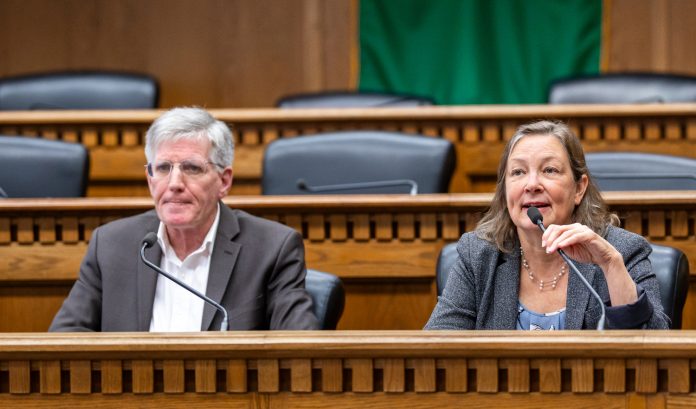
On April 27, a hectic state legislative session drew to an end with lawmakers approving a new two-year Washington state operating budget. No Republicans voted for the bill, while six Democrats in the House and one Democrat in the Senate voted no. The budget has now been sent to Governor Bob Ferguson’s desk; he has until May 17 to decide whether to sign or veto.
The budget process this year was particularly tricky due to an estimated $16 billion deficit over the next four years. Also complicating matters was Ferguson’s continued resistance to adding more progressive sources of revenue to the state’s coffers while refusing to make sufficient suggestions for cuts to make up the difference.
Democrats had to go back to the drawing board two times after Ferguson complained about the amount of new taxes included in their budget proposals. While their former proposals included $21 billion and then $12 billion in new taxes over four years, their final proposal only adds around $9 billion. The new budget also contains about $2.7 billion in cuts over the next two years, with more to come in the future.
“I think in the House, our primary message on the budget from beginning to end was that we needed to take a balanced approach,” Rep. Laurie Jinkins (D-27, Tacoma) said at a press conference at the end of the legislative session. “And if you look at the operating budget in particular, there are seven billion dollars of reductions and about eight billion, give or take, in revenue in the budget.”
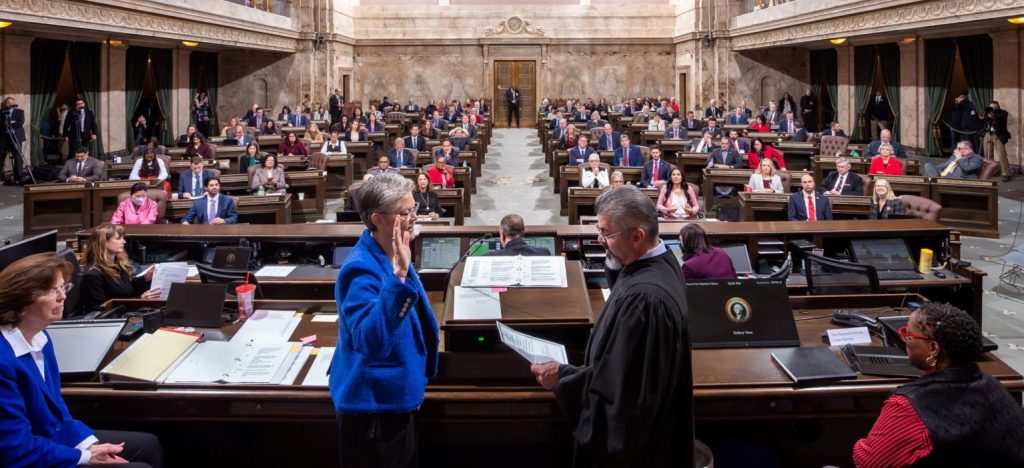
Noteworthy moves during session
This legislative session will perhaps be most remembered for its housing bills, as both chambers passed the rent stabilization bill along with a host of bills to address the state’s housing supply.
It was also largely successful for labor, who managed to avoid the state worker furloughs originally proposed by Ferguson while championing a bill providing unemployment insurance for striking workers. Labor interests also pushed to support immigrant rights with HB 1875, already signed by Ferguson, which allows for the use of paid sick leave to prepare for or participate in certain immigration proceedings.
Also passed and signed is SB 5840, which prevents medical debt from being reported to credit bureaus, and HB 1858, which closes a fee loophole for big banks, generating over $60 million per year for housing assistance and shelter investments. Awaiting signature is HB 1213, which removes a large loophole from the Paid Family Medical Leave (PFML) program and HB 1163, which institutes a gun permit to purchase requirement.
And Ferguson received the $100 million he had demanded for a grant program to hire new police officers across the state.
The revenue question
The new revenue in the budget is largely a result of an increase on already existing taxes, including raising the state’s business and occupation (B&O) tax and introducing new sales taxes on more services such as advertising, lobbying, security, temporary staffing, and more products containing nicotine. The capital gains tax was also raised, and the budget would levy a new electric vehicle tax credit that would primarily target Tesla.
The budget contains a new 0.1% “public safety” sales tax option for local municipalities, while failing once again to lift the property tax revenue growth cap from 1% annually.
However, this tax package is far cry from the initial proposals from both the House and the Senate, which featured new progressive revenue proposals such as the wealth tax and a payroll expense tax similar to the JumpStart tax in Seattle. The latter proposal in particular might have assisted Seattle, as companies already paying the Seattle tax would have received a tax credit and would have been less incentivized to move out of Seattle to nearby cities like Bellevue.
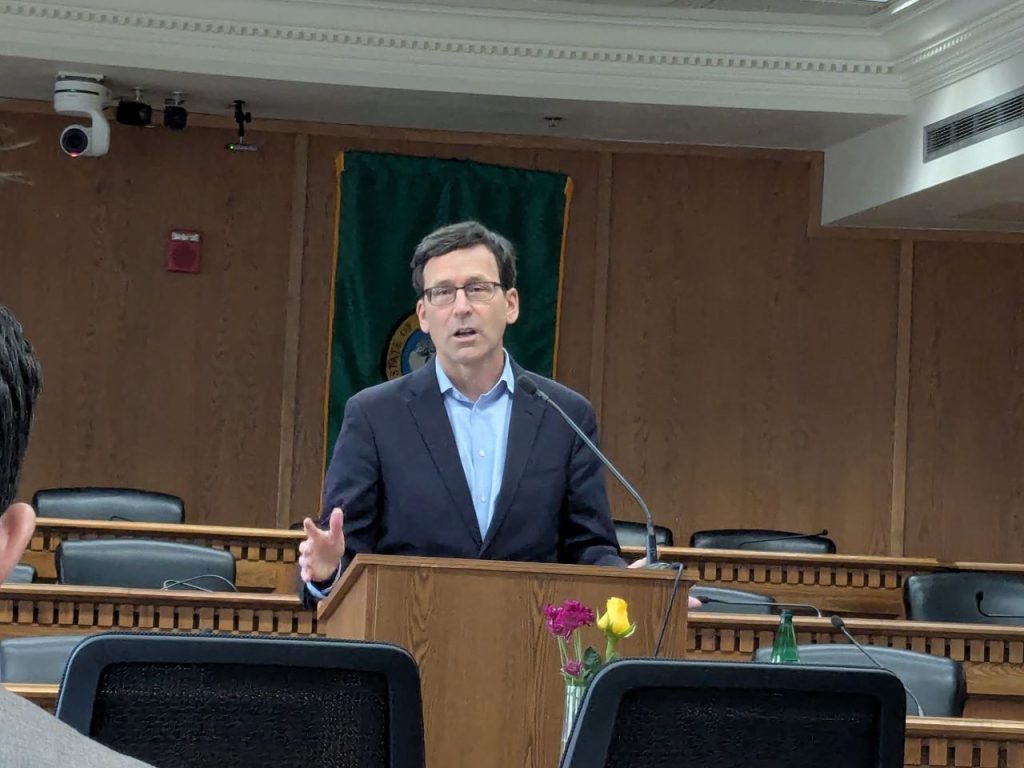
Ferguson dashed cold water on these bolder revenue proposals earlier in the session, particularly opposing the wealth tax, which he said he would veto. In tandem, Microsoft, along with other big companies in Washington including Costco, T-Mobile, and Nordstrom, embarked on a multi-billion dollar lobbying campaign against the wealth tax. These two forces were enough to dissuade lawmakers from their initial proposals.
Rian Watt, executive director of the Economic Opportunity Institute (and board vice president at The Urbanist), maintains that progressive revenue proposals remain popular with the public.
“Voters in November defended capital gains with a higher percentage than any elected official on the ballot, and they’ve demonstrated that when they understand where their tax dollars are going to, they are more than willing to tax the rich to pay for vital programs and services,” Watt said.
A poll run by The Seattle Times last October found 66% of respondents favored the idea of a new wealth tax. And Democratic lawmakers haven’t given up on the idea. On the last day of session, the Senate made a largely symbolic vote on a smaller version of the originally proposed wealth tax, while knowing the proposal was already dead in the House.
Speaking about the wealth tax vote, Senate Majority Floor Leader Jamie Pedersen (D-43rd, Seattle) said, “I think this was a significant step forward and an opportunity for us to present a vision of what the world could look like in terms of better funded public schools and perhaps less regressive taxation if we were able to call on some of our most fortunate community members to contribute a higher share of their property to the general welfare.”
“I suspect that we’re going to have a second crack at the wealth tax,” said Rep. Shaun Scott (D-43rd, Seattle). “I believe that the Senate did the right thing in passing that bill because it was a message to the Executive’s office, a message […] to those of us who are in the House that this is still an active and alive proposal that we’ll be able to revisit.”
The Association of Washington Business, Bellevue Chamber of Commerce, Seattle Metropolitan Chamber of Commerce, and Washington Roundtable remain unhappy with the much smaller revenue package eventually adopted by the legislature, issuing a press release entitled, “Legislature passes largest tax increase in state history.”
Business interests are not the only ones disappointed by the final budget. Watt was also skeptical about the final compromise that was reached.
“I think this time of year, we always hear lawmakers are facing difficult choices, and what they want us to hear is that the choices are difficult. What I hear is that this is a choice,” said Watt. “And this year, lawmakers again, with the support of the governor, made the choice to turn away from tested, proven progressive revenue sources and instead balance the budget through a combination of cuts to vital services and regressive sales tax increases.”
Cuts, cuts, and more cuts
“The unfortunate reality is that the state legislature took action to prevent the amount of the harmful cuts that would be made to programs that people depend on, but we in the legislature did not find a compliant partner in the Executive’s office in that project,” said Scott, referencing Ferguson’s repeated demands for a smaller revenue package. “And so I think that we’re left with a much more bitter than bittersweet feeling about what could have been if we had executive leadership around reducing the amount of harmful austerity measures that would be implemented in this year.”
While agencies and local governments are still busily analyzing the impacts, the newly passed budget contains many painful cuts.
Built into the budget is a long delay in the expansion of eligibility under the Fair Start for Kids Act for subsidized child care and early learning programs. Research by Dr. James Heckman found that “high quality birth-to-five programs for disadvantaged children can deliver a 13% per year return on investment.” Washington’s early learning program was set to become an entitlement in 2026, and eligibility for subsidies for child care was set to expand to families with higher incomes.
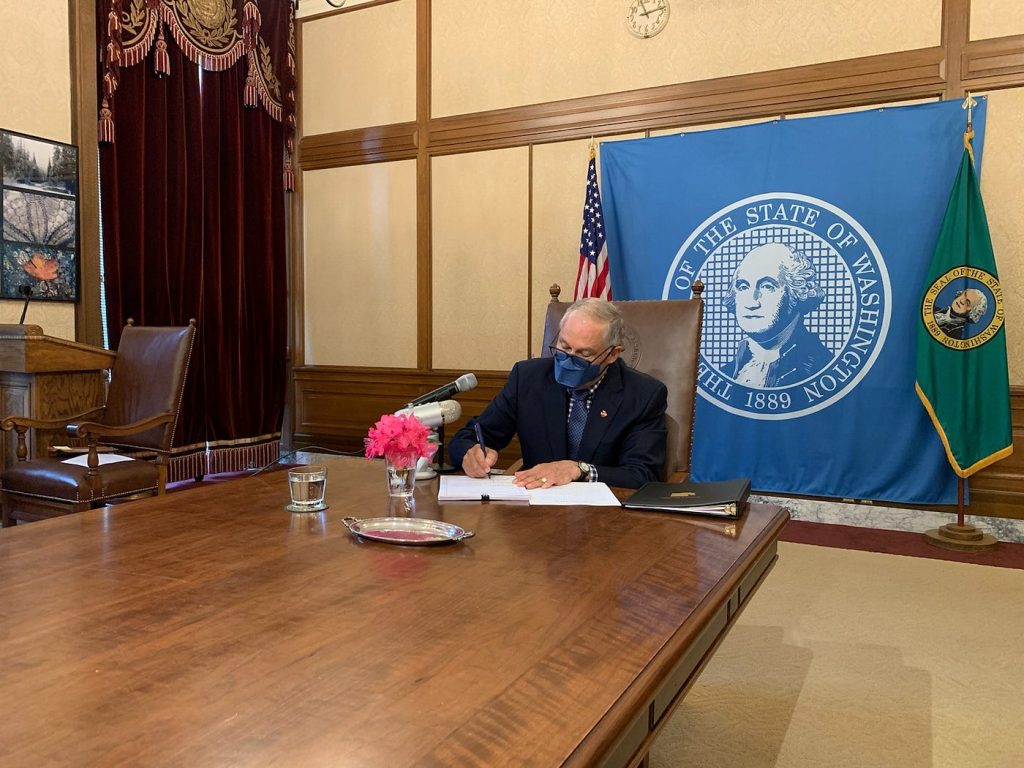
While campaigning last summer, Ferguson posted the following on Facebook: “Too many Washington parents have had to quit their jobs because they can’t afford child care. It’s unacceptable. It’s hurting families, and losing our economy billions. I’ll fix it. We will reduce what families pay for child care, and expand access.”
But with the delay in the Fair Start for Kids Act expansion, Washingtonians won’t see a fix in child care affordability anytime soon. The expansions are currently delayed until after 2029.
The Abortion Access Project has been slashed by $8.5 million, which represents a 55% cut. This is in spite of the fact Washington state abortion providers have seen a 23% increase in patients since the overturn of Roe v. Wade in 2022.
“These cuts were not inevitable: the legislature was unable to correct the state’s regressive tax code and instead of taking bold and innovative action, they have fallen back on outdated strategies of cutting services from those who need them the most,” read the statement from Planned Parenthood Alliance Advocates. “This is the largest cut to abortion access in Washington’s history, coming at a time when abortion access and reproductive health are under existential threat nationwide by the Trump Administration and federal courts.”
Also included in the budget are cuts to higher education. “We will see reductions in state support for our four-year colleges and universities, reductions in support for our community and technical colleges, reduction in state financial aid for students at independent colleges,” said Rep. Joe Fitzgibbon (D-34th, West Seattle).
According to UW Impact, the state will be paying a lower share of university employee cost-of-living adjustments while also imposing an overall 1.5% cut to public universities. The University of Washington Center for Behavioral Health and Learning, which trains mental health practitioners, also only received partial funding for the next fiscal year.
The Washington State Hospital Association released a statement saying they are “disappointed that many of the budget cuts were in health care and long-term care.” The budget does not fund Dolly Parton’s “Imagination Library” program that provides free books to children under age 5. It also fails to fully fund the successful state-owned rights of way encampment resolution program.
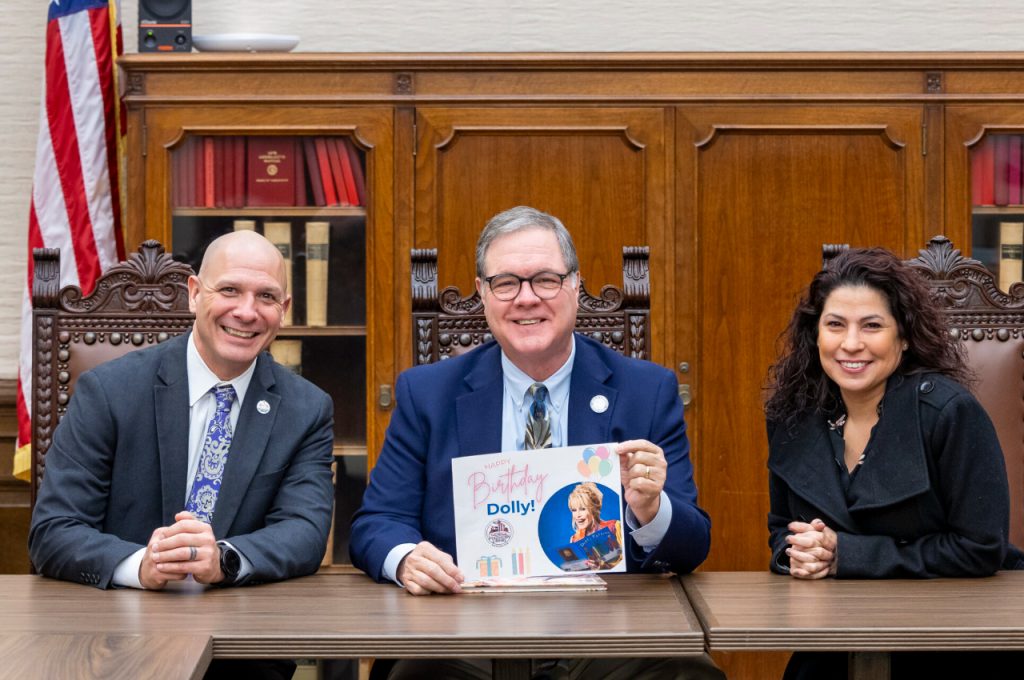
Even K-12 education did not receive the level of investment that seemed possible at the beginning of the session, with the House not matching the fervor of the Senate’s champions for increasing investments in education. The Washington State PTA and state K-12 education associations sent a letter expressing their disappointment in the budget outcomes. They wrote that HB 2049 “exacerbates the inequities between school districts based on ZIP code.” They also wrote that in terms of special education, “little will change in terms of delivering the services that are needed to help these students flourish.”
“People will realize it when they’re trying to get services, and they’re going to see more wait times or delays, and we don’t know what’s coming from the federal government and we know it’s not going to be good for access to health care for the most vulnerable,” said Senator Manka Dhingra (D-45th, Redmond). “So those are the realities when we cannot have a budget that has the money needed to run the state effectively and efficiently and look out for the most vulnerable amongst us.”
Looking ahead
At the end of the session, Ferguson released a statement instead of speaking to reporters.
“I look forward to carefully reviewing the budgets line by line over the next few weeks,” Ferguson wrote. “When that review is complete, I will share my thoughts with the public in greater detail.”
Ferguson continued his earlier arguments that the only way to protect the state from the Trump administration’s penchant for weaponizing federal funding was to maintain the Rainy Day Fund and “to budget in a way that prepares,” which in Ferguson’s mind appears to mean adding less progressive revenue and therefore making more cuts.
But not everyone agrees with Ferguson’s approach.
“The governor’s interest in protecting Washington against potential federal claw backs is both appropriate and totally understandable,” Watt said, “which is why it’s all the more baffling to me that he was not supportive of proven new progressive revenue sources that would have put Washington in a stronger position to invest in its own economy and its own people.”
Scott has identified four silos of funding he thinks are at particular risk from the Trump administration going forward: higher education, cash assistance programs (including Medicaid, known as Apple Care in Washington state), housing, and abortion access. He hopes to revisit the wealth tax next year to bolster investment in these four areas.
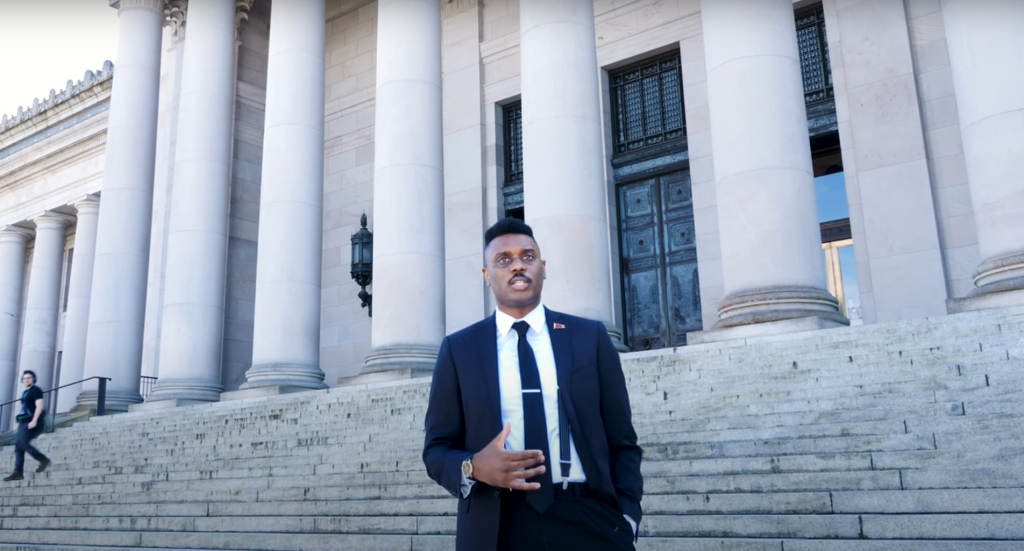
“The governor would probably be interested to know that not all of the revenue options that could have been raised were raised in the session,” Scott said. “And so, as a result, I think we’re going to have a lot to look forward to as state lawmakers next year, and I know I can’t wait to get started on filling in a number of the gaps and trying to restore funding to some of those programs that were on the chopping block this year.”
Watt is also optimistic about next year’s session.
“Most Washingtonians understand the urgency of the moment that we’re in right now, and they want their leaders to dream big and fight for big things in the state, and they didn’t get that this session,” Watt said. “And so I imagine that this will set us up for future sessions in which lawmakers have more opportunities to fight for the things that most Washingtonians want, which are great communities, well-funded programs, and services.”
Amy Sundberg is the publisher of Notes from the Emerald City, a weekly newsletter on Seattle politics and policy with a particular focus on public safety, police accountability, and the criminal legal system. She also writes science fiction, fantasy, and horror novels. She is particularly fond of Seattle’s parks, where she can often be found walking her little dog.


